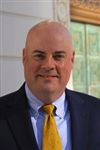Learn how to lead the jurors down your path to their verdict rather than your opponent’s path.
In addition to the fears about Opening Statements that lawyers know about - public speaking; captive audience; trials are rare - there are pitfalls lawyers don’t see . . . and therefore fall into. Worse yet, lawyers often try to accomplish the wrong things with their Opening, thus squandering a great opportunity to make some real headway in framing their case for the layperson jurors. This presentation will help lawyers think a little less like lawyers and a lot more like jurors, and help them better set the filters and frames which would make it easier to lead the jurors down your path to their verdict rather than your opponent’s path.
Agenda
The Purpose of the Opening: What It Can and Cannot Do
- Setting the Right Frames and Filters for Your Jurors
- Setting the Right Tone
- Telling the Right Story
Story: How to Tell a Good One . . . and Avoid Timelines
- What Is a Story . . . and Why Isn’t My Chronology a Story?
- Crafting and Telling Tell Your Story
- Visuals in the Opening
- Framing Your Case
How to Construct Your Opening Statement
- The Best - for Lack of a Better Word - Template
- Language and Imagery, Both Verbal and Visual
- Tone and Delivery
The Mini-Opening Before Voir Dire, Where Permitted
- The Purpose . . . and the Real Purpose
- Nearly Universal Lawyer Pitfalls
- The Right Way to Construct Your Mini-Opening
- Your Voir Dire/Jury Selection Strategy Doesn’t Exist Independently of Your Opening, nor Vice Versa
Speakers

Richard P. Matthews,
Juryology- Principal trial consultant of Juryology, located in San Francisco
- Combines research with psychology with artistic craft to get the best results from jurors
- Expertise includes separating jury issues from the legal issues; crafting the themes and frames that will shape juror perception of a case; writing openings and closings like an actual human actually speaks to other actual humans; witness preparation; and all things related to jury selection from juror questionnaires and voir dire questions to exercising cause and peremptory challenges
- Innovated the use of focus group results at mediations and in negotiations to achieve better settlements in a shorter time than clients had experienced without them
- Achieved successful results for both plaintiffs and defendants in the civil world, and prosecutors and defendants in criminal cases
- Appeared on national television and in major publications offering commentary on high profile trials
- Serves on the California Bar’s Litigation Section’s Committee for comment on proposed revisions to California’s standard jury instructions, lending his juror expertise to improving the understandability and clarity of jury instructions
- J.D. degree, University of Oregon School of Law
- Can be contacted at Juryology.com, @Juryology, LinkedIn® Juryology, or Rich@Juryology.com
Who Should Attend
This live webinar is designed for Attorneys interested in maximizing their skills in opening statements.









